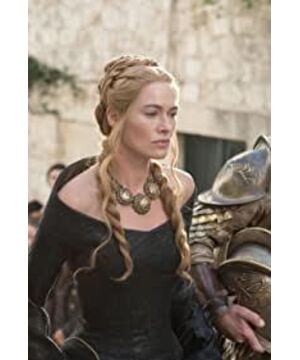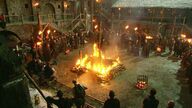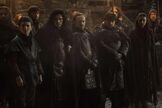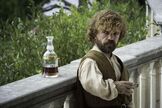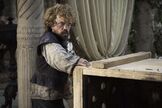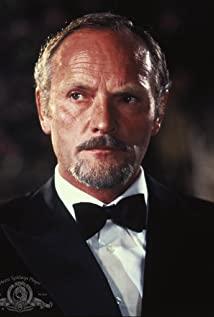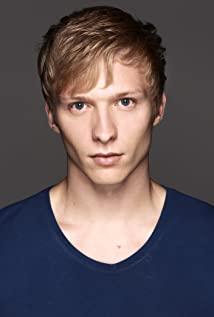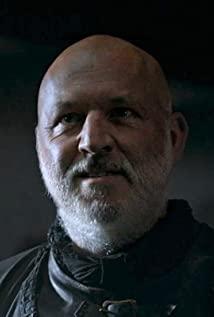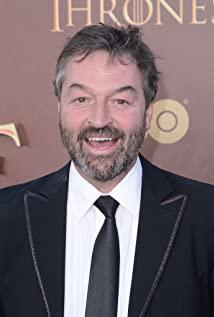Recently, I read an interview with Chen Danqing called "American dramas are contemporary novels." He believes that American dramas have far surpassed contemporary films and are the best carrier for telling grand stories in contemporary times. Why compare with novels? In the simple age of only paper media, "Les Miserables", "War and Peace", the earlier "Three Kingdoms", "Water Margin", it is in the form of novels, to present and future people present magnificent history, The light and darkness of human nature, the irreversible consequences of personal choices. From this perspective, "Ice and Fire" is the pinnacle of American drama creation in recent years. For a European history and literary master, the story structure of "Frozen" seems very intimate. Isn't Westeros, The Narrow Sea, the European continent and the Mediterranean? And isn't Meereen, where slavery prevails in the East, ancient Persia or ancient Egypt? The mutual suspicion and snooping between Westeros and Eastern countries is a mirror image of the long-term geopolitical struggle between ancient Greece and ancient Persia for the Mediterranean trade hegemony in early European history. The power struggle between the seven major families in Westeros, the inheritance of their territories and titles, including their relationship with the throne, is just a replica of the social and political reality in Europe from the savage period to the establishment of modern sovereign states. Even the religious elements in the plot of "Ice and Fire" secretly reveal the shadow of religion in European history. In particular, the new beliefs are incompatible with the old beliefs: the Vulcan witch burned a group of people who insisted on the old beliefs as soon as she appeared. It was Protestants and Catholics in European history that mutually executed "infidels" and the bottom-level religious resistance movement led by High Sparrow of the fifth season, which opposes the extravagance of the ruling class, including the religious ruling class (the one who was caught and whipped from the brothel should be the "Archbishop") , Moral degeneration, these religious reformers with bare feet and chains, aren't they the Protestant reformers who broke away from Catholicism back then? Therefore, "Ice and Fire" does have an epic pattern. In the epic grand pattern, many details also contrast with the real history, such as The Wall in the north. The Chinese only know that China has the Great Wall. In fact, there was once a Great Wall in the north of the United Kingdom. It was the Hadrian emperor of ancient Rome in AD It was built around the 3rd century to guard against the "barbarians" in the north. So The Wall to resist wilderling and whitewalker, And the most favorite setting in this building, the garden and palace of Dorne Meilun Miyo in the fifth season: tall palm trees, brightly colored tiles, horseshoe-shaped arches, just like the Alhambra Palace in Granada, Spain Replica, so I know that Dorne is imitating southern Spain under the rule of the Moors, no wonder Dorne's warriors are Arab costumes! I recently read "Two Thousand Years in the Middle East", and I was surprised to find that the "Slave Boy Scouts" that the Dragon Mother subdued in "Ice and Fire" and used to serve the eastern aristocrats was a practice in the early Arab empire! It's easy to talk too much about human nature, so I just want to talk about it. The two characters in "Ice and Fire" have the deepest insight into human nature, one is the bald eunuch Varys, and the other is the little finger who runs a brothel, so these two people , can basically manipulate everyone, because where one's desire is is where one's weakness lies. The bald-headed Varys has been a eunuch since he was a child, so he is able to distance himself from desire and gain insight into human nature, while the little finger who runs a brothel is a master of discovering all kinds of hidden desires. However, the most interesting thing in "Frozen" is not the above mentioned at all! The most fascinating thing in "Ice and Fire" is the choice of that character, many of which, if you think about it carefully without the fog of the plot, almost everyone will encounter it in their lifetime! In the play, these choices not only reveal the character's human nature, but also directly determine the fate of the character and the progress of the plot (history) with the irrevocable and changed consequences. As a contemporary philosopher named Foucault said, "self" is not born with us, but our actions. Our choices make "us" and determine who we are. Briefly talk about the choices I am most interested in: Ned Stark's choice I am the king's good brother. One day I suddenly learned that several of my good brother's children were not born to him, but to his wife and others! Shall I tell him? This choice, in a less dramatic way, will come into the lives of many of us - my good friend has a friend who I firmly believe is a villain, and I think he's going to hurt my friend, should I tell he? I think my good brother's new girlfriend is a disaster, should I tell him? I put Ned's problem to the test with two of my male colleagues, and they both chose "I won't do anything." But Ned did. Not only was he going to tell his good brother the king the news of the explosion, but he also gracefully informed his wife first: "I'm going to tell you! You'd better run away with your bastards. !" Ned may not be a man with big limbs and a simple mind, but he really is a man with no sense of human nature. So not only was he beaten to the ground, but also the Stark family went down a path of tragedy. After reading "Ice and Fire", you will find that most people's tragedies are self-inflicted. The problem with Ned is that he doesn't realize that he is not a grassman, he is the lord of Winterfell, he is first and foremost a "political figure", and his actions not only directly affect the rise and fall of the family, but also affect the well-being of the entire Westeros. If he knew that this long series of chain reactions would cause chaos in the world and ruin lives, he should agree that tolerating a few private sons is what a real "chivalrous person" should do. Robert's choice, like Ned's, is only for temporary pleasure, and the one who disregards everyone's life and death is Ned's eldest son, Robert. Like his father, he is a good warfighter, but he naively thinks that he can conquer the world by himself, and does not pay attention to forming alliances and using the strength of others. Although he reluctantly promised to marry the daughter of the minor noble who guarded the Narrow Bridge as a condition of the alliance, he married the woman he liked in the battlefield, thinking that it would be enough for his cousin to marry the other's daughter. He also never inquired about the character of the other party, so as to how the other party might react - at this point, Varys and Little Renly has been forgotten by everyone by this time. But when he was pushed by Ser Loras to fight for the throne with Stannis, he was one of the dumbest choices ever made. This mistake is called "don't know who I am". Renly was usually a dude with neither ambition nor skill. Suddenly, because of the death of the king's brother, his son was said to be an illegitimate child. Under the pressure of others, he even raised troops to fight for the throne. I will die", so he died first, which was considered light as a feather, but because "don't know who you are" is a mistake many people make, so I came up with it and talked about it. Jon Snow is a popular lover among fans of "Ice and Fire". He is handsome and good at martial arts. He has both personality and human charm. Unfortunately, it is also a common problem of the Stark family: more than brave, lack of strategy, and also lack of sufficient understanding of human nature. Since ancient times, the barbarian wilderling outside the wall has been the enemy of The Night's Watch, the guardian of the wall and the people inside the wall. He is sympathetic and believes that wilderling is also a human being, so he launched an attack on the wall at wilderling, causing extensive damage to the Night's Watch. Soon after, he was going to rescue the wilderlings, putting them inside the wall. He also has a big hat: The white walker's general attack on mankind is about to start, so all forces that can be united must be united - unfortunately, the white walker is coming, and others do not agree. So Jon Snow also died. Children who have watched "Rome" will find that he died in exactly the same way as Caesar. He was stabbed to death by a colleague who disagreed with each other. Even the last boy's knife was as if Caesar's adopted son also gave him a knife. . Seeing the turning point of history, leaders who want to bridge the deep rift between long-standing rival nations are usually killed by the extreme leftists in their own camp. It seems that the former Israeli Prime Minister Shabin was killed for advocating reconciliation with Palestine. Murdered; the former leader of the Sinn Fein party of the Irish Republican Army was also murdered when he finally decided to reconcile with the British government. They have reached the altar of their own ideals and become stepping stones for the advancement of history. I don't know Jon Will Snow's sacrifice be understood and appreciated in the sixth season? I guess not. Because the style of "Ice and Fire" is as ruthless and ruthless as ice and fire, and never leaves any chance for idealism. As an aside, I always thought that the Stark kids were going to avenge the family, and it didn't seem to happen, so I finally realized that their mission was not revenge, but to defend and "revitalize" the North, Jon Snow is He has made a certain contribution to this mission. Next, he must fight against the white walker and avoid the catastrophe of mankind. It is estimated that he has to rely on Brian, a lame handsome guy who is approaching his mission in the mysterious black crow who is constantly chasing dreams. The emphasis on the choice of characters, the emphasis on the irrevocable consequences of their actions - this is the biggest difference between Western and Eastern epics. In oriental stories, such as "Three Kingdoms", "Water Margin", and "Journey to the West", the shaping of characters is often caught in masking, and their behavior is often regarded as a natural development, rather than a process that can be selected. Such different literary traditions may reflect the ideological foundation of individualism of "people-oriented" in the West and the cultural foundation of "collective thinking and action" in the East.
View more about The Wars to Come reviews


